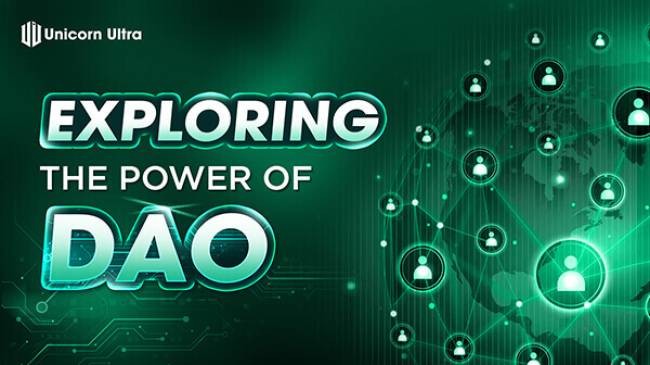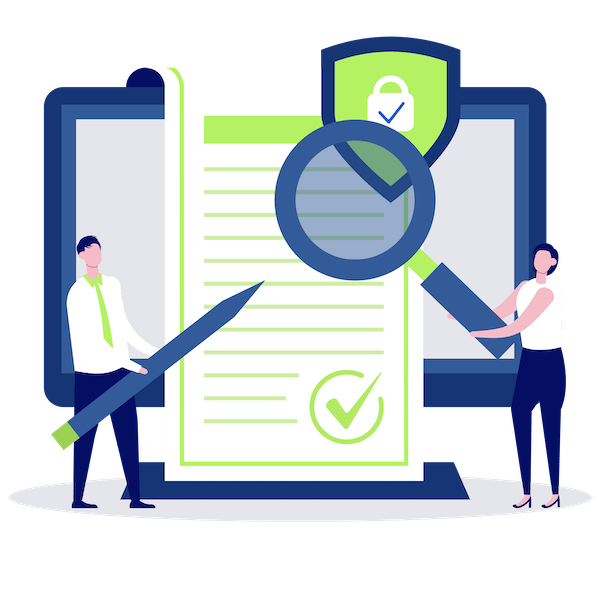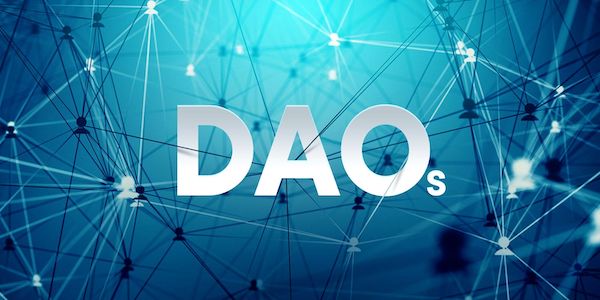Categories: General Information
What is DAO? Exploring the Power of Decentralized Autonomous Organizations
Discover the revolutionary concept of Decentralized Autonomous Organizations (DAOs) and their impact on the world of finance, governance, and innovation. Learn what is DAO, how DAOs work, their purpose, benefits, and limitations in this comprehensive blog.
In recent years, the rise of blockchain technology has given birth to innovative concepts that challenge traditional centralized structures. One such groundbreaking concept is that of Decentralized Autonomous Organizations (DAOs). DAOs represent a paradigm shift in the way we organize and collaborate, enabling decentralized decision-making and fostering collective ownership. In this blog, we will delve into the world of DAOs, learn what is DAO, exploring their definition, purpose, functionality, benefits, and limitations.
Table of Contents
What is DAO?

What is DAO? A Decentralized Autonomous Organization, commonly known as a DAO, is an organization that operates on a blockchain or a decentralized network, eliminating the need for a centralized authority or hierarchy. DAOs are built on smart contracts, which are self-executing contracts with the terms of the agreement directly written into code. These smart contracts govern the rules and operations of the organization, automating decision-making and financial transactions.
What Is the Purpose of Decentralized Autonomous Organizations (DAOs)?
The primary purpose of DAOs is to facilitate decentralized decision-making and create a transparent and inclusive environment for collaboration. DAOs aim to empower participants by allowing them to influence the organization's direction and contribute to its growth. Through the use of blockchain technology, DAOs enable direct and secure peer-to-peer interactions, reducing reliance on intermediaries and fostering trust among participants.
How DAOs Work?
DAOs operate through a combination of smart contracts and decentralized governance mechanisms. The smart contracts define the rules and protocols that govern the organization, including decision-making processes, fund management, and member participation. DAO participants, also known as token holders, have voting rights proportional to their token ownership. This democratic approach ensures that major decisions are made collectively, avoiding the concentration of power in the hands of a few.

To facilitate decision-making, DAOs often utilize on-chain voting mechanisms, where token holders can vote on proposals and contribute to shaping the organization's future. Proposals can range from fund allocation to protocol upgrades or changes in governance rules. Smart contracts automatically execute these decisions once a predetermined majority or consensus is reached.
Examples of successful DAOs
As of my knowledge cutoff in September 2021, several successful decentralized autonomous organizations (DAOs) have emerged in the blockchain space. These DAOs have demonstrated effective governance, community participation, and successful project execution. Here are some examples:
- MakerDAO: MakerDAO is one of the earliest and most successful DAOs, responsible for governing the Maker Protocol and the DAI stablecoin. It operates on the Ethereum blockchain and uses the MKR token for governance. MakerDAO's decentralized governance allows MKR token holders to propose and vote on changes to the protocol, including adjustments to the stability fee, collateral types, and risk parameters.
- Aragon: Aragon is a decentralized platform that enables the creation and management of DAOs. It allows organizations to be governed by smart contracts and community voting. Aragon empowers its users to create their own customized DAOs for various purposes, such as project management, community governance, and decentralized businesses.
- Curve Finance: Curve Finance is a decentralized exchange (DEX) designed for stablecoin trading. It operates as a DAO with CRV token holders participating in governance decisions. The DAO determines the platform's trading fees, incentivizes liquidity provision, and votes on protocol upgrades.
- Yearn Finance: Yearn Finance is a decentralized yield aggregator that automatically optimizes users' funds for maximum yield across various DeFi protocols. It operates as a DAO with the YFI token holders making key governance decisions, including the distribution of fees, protocol upgrades, and strategies for yield optimization.
- Compound: Compound is a decentralized lending and borrowing protocol that allows users to earn interest on their crypto assets and borrow against them. It operates as a DAO with the COMP token holders governing the platform, including proposing and voting on changes to the protocol's parameters.
- Uniswap: Uniswap is a decentralized exchange (DEX) that operates on automated market maker (AMM) principles. Uniswap's governance transitioned from a centralized multisig to a community-governed DAO with the UNI token holders participating in decision-making related to the platform's development and future upgrades.
Please note that the landscape of successful DAOs is continually evolving, and there may be new and emerging examples beyond my knowledge cutoff date. Additionally, the success and effectiveness of DAOs depend on factors such as community participation, transparency, utility, and the ability to deliver on their stated objectives. It's essential to conduct further research and stay updated with the latest developments to identify successful and thriving DAOs.
Benefits of DAOs
Decentralized Autonomous Organizations offer several notable advantages:
- Transparency: DAOs operate on a transparent and immutable blockchain, ensuring that all transactions and decisions are publicly visible. This transparency fosters trust among participants and helps prevent fraud and corruption.
- Inclusive Governance: DAOs enable anyone to participate and contribute, regardless of their geographical location or social status. This inclusivity fosters diversity of thought and encourages a more inclusive decision-making process.
- Increased Efficiency: By automating processes and reducing the need for intermediaries, DAOs can operate more efficiently and reduce costs associated with traditional organizational structures.
- Innovation and Collaboration: DAOs provide a platform for individuals with shared interests to collaborate and innovate, driving progress in various industries. They offer opportunities for funding and resource allocation to promising projects, fostering entrepreneurship and creativity.
Limitations of DAOs
While DAOs hold immense promise, there are certain limitations to consider:

- Lack of Regulation: As DAOs operate in a decentralized manner, they often exist outside the realm of traditional regulatory frameworks. This regulatory ambiguity can create challenges, especially when dealing with legal compliance, taxation, and investor protection.
- Governance Challenges: DAOs face governance challenges, such as ensuring widespread participation, preventing manipulation, and resolving conflicts of interest. Striking a balance between decentralized decision-making and effective governance is an ongoing challenge.
- Scalability: As blockchain technology evolves, scalability remains a concern for DAOs. The current limitations of blockchain networks, such as transaction speed and scalability, can hinder the seamless operation of large-scale DAOs.
How to create a DAO?
Creating a decentralized autonomous organization (DAO) involves several steps, and it requires technical knowledge, community engagement, and careful planning. Below are the general steps to create a DAO:
1. Define the Purpose: Determine the purpose and goals of your DAO. Decide what problems the DAO aims to solve or what services it will provide to the community. Establish a clear mission statement to guide the organization's activities.
2. Select the Blockchain Platform: Choose a blockchain platform that supports smart contracts and decentralized governance. Ethereum is one of the most popular choices due to its wide adoption and robust smart contract capabilities. Other platforms like Binance Smart Chain (BSC), Polkadot, or Solana may also be considered.
3. Develop Smart Contracts: Create the smart contracts that will govern the DAO's functions. These contracts will define the rules for voting, proposal submission, fund management, and other governance-related actions. You may write the smart contracts from scratch or use existing frameworks like Aragon or DAOstack.
4. Tokenomics and Governance Token: Design the tokenomics of the DAO, including the issuance and distribution of governance tokens. Governance tokens give holders voting power in the DAO and enable them to participate in decision-making. Carefully consider the distribution model to ensure fair participation.
5. Community Engagement: Building an active and engaged community is vital for the success of a DAO. Engage with potential users and stakeholders, explain the DAO's purpose and benefits, and seek feedback during the development process.
6. Security Audits: Conduct security audits of your smart contracts to identify and fix potential vulnerabilities. Security is critical to protect the DAO and its users from potential attacks or hacks.
7. Launch and Distribution: Deploy the smart contracts to the chosen blockchain, and distribute the governance tokens to early contributors, team members, and the community based on the tokenomics plan.
8. DAO Governance Process: Set up the governance process, including voting mechanisms, proposal submission, and decision-making rules. Determine the voting power of governance token holders and the threshold required for proposals to be accepted.
9. Iterate and Improve: DAOs are dynamic entities that evolve over time. Continuously engage with the community, gather feedback, and implement improvements to the governance process based on the DAO's needs.
10. Compliance and Legal Considerations: Depending on the DAO's jurisdiction and nature of operations, consider compliance and legal considerations. Ensure you comply with relevant regulations and seek legal advice if necessary.
11. Long-Term Sustainability: Plan for the long-term sustainability of the DAO. Consider how the DAO will fund its operations, community initiatives, and future development.
Creating a successful DAO requires a strong vision, active community participation, and a commitment to transparency and decentralized decision-making. It's essential to be mindful of potential risks and challenges and continuously adapt to the evolving blockchain ecosystem.
Conclusion
In conclusion, DAOs are revolutionary decentralized organizations that redefine how we collaborate and make decisions. Powered by blockchain technology, DAOs offer transparency, inclusivity, and collective ownership. While facing challenges in regulation, governance, and scalability, DAOs hold immense potential to reshape industries and empower individuals. As the understanding and technology behind DAOs progress, we can expect them to transform finance, governance, and innovation in exciting ways. What is DAO? It's a paradigm shift towards decentralized decision-making and collaborative ownership that has the power to shape the future. Follow Unicorn Ultra for more blockchain information.
